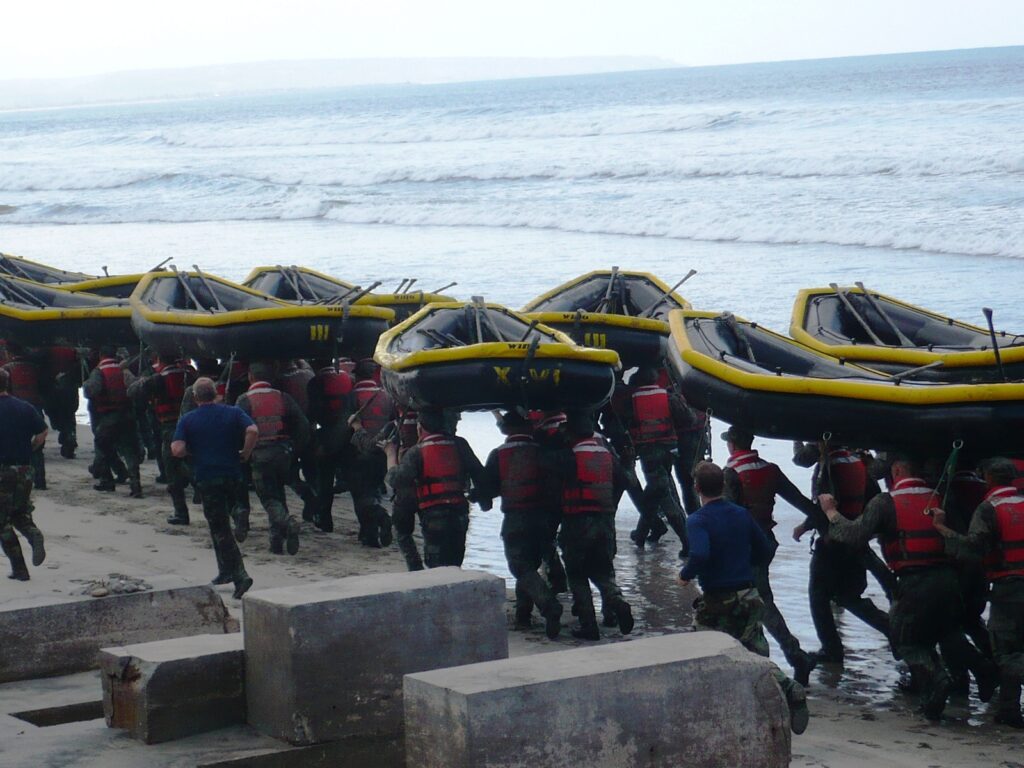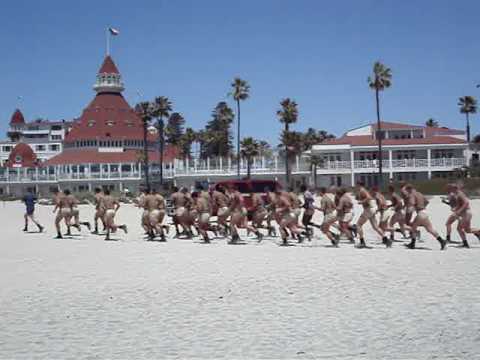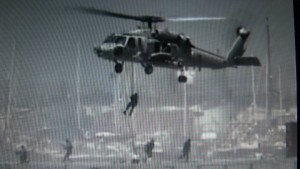
Naval Special Warfare continues to train on Coronado beaches, despite media outlets reporting the movement of training operations to alternative locations due to the sewage outflow from the Tijuana River that’s polluting local beaches.
Within recent weeks, Rep. Duncan Hunter has called on Secretary of State Rex Tillerson and Scott Pruitt, administrator of the Environmental Protection Agency, to take immediate action to stop the flow of sewage from Tijuana. According to the San Diego Congressman, Border Patrol agents have fallen ill and military training efforts are being affected in the ocean south of Coronado.
“I have personally received reports of Border Patrol agents falling ill, being forced to leave their shifts and seek medical attention, possibly even putting their families at risk when these agents return home following events of exposure,” Hunter wrote. “Additionally, I am aware of critical military operations and exercises in the area being suspended because of the harmful conditions and risk the current spill poses.”

“This year there have been no [Naval Special Warfare] training stoppages due to water quality issues,” says Lieutenant Commander and Media Officer / APAO Mark Walton on behalf of the US Navy, Naval Special Warfare Command.
LCDR Walton says NSW follows county-wide and local water and weather advisories to ensure the safety of all personnel. “When necessary, as a precaution, we adjust training schedules to protect our personnel until those advisories are lifted.”
According to Hunter’s letter, the unprecedented spills from Tijuana, amounting to hundreds of millions of gallons of sewage and contaminating the waters from Imperial Beach, along Silver Strand, and north to Coronado, have sickened Border Patrol Agents.
Conversely, LCDR Walton says NSW personnel haven’t experienced the same saddening outcome. “There is insufficient evidence to support a correlation between illness in our personnel and poor water quality,” he explains.

The San Diego Bay and Coronado beaches are shared by several military entities. LTJG Gia DeHart, Naval Base Coronado Assistant Public Affairs Officer says, “The Navy remains hopeful for a comprehensive, permanent solution to the quality and stability of the Tijuana River to reduce impacts to Naval Outlying Landing Field Imperial Beach (NOLFIB) and potential impacts to natural resources and military activities.”
Local beaches are prime nesting grounds for the Western Snowy Plover and California Least Tern, both of which are listed endangered species. According to LTJG DeHart, Naval Base Coronado manages an extensive breeding season enhancement and monitoring program to ensure the continued recovery of both species. “We have some concern that residual beach contamination could affect the quality and safety of some nesting areas.”
In addition to impacts to endangered species, LTJG DeHart reveals, “The Navy does have significant concerns with the substantial amount of debris that routinely pollutes the Tijuana River.” During storms and other high river flow events, discarded tires and other debris clog the river’s natural channel resulting in erosion of adjacent areas, such as the river banks along the NOLFIB. LTJG DeHart says, “Erosion has progressed to the point of threatening the installation’s perimeter fencing, requiring the Navy to develop a project to reinforce the river banks and relocate portions of the fence.” The Navy completed an Environmental Assessment for this project in July 2016.
Residents of Coronado, as well as military personnel, who wish to voice their concerns over the ocean’s water quality are advised to write letters to state representatives or call them.
TAKEN FROM WILDCOAST WEBSITE:
Want to take action from your own home? Write a letter to your state representatives or call them:
Sen. Kamala Harris
600 B Street, Suite 2240
San Diego, CA 92101
Phone (619) 239 – 3884
Fax (202) 228 – 3863
Sen. Dianne Feinstein
880 Front Street, Suite 4236
San Diego, CA 92101
Phone: (619) 231-9712
Fax: (619) 231-1108
Rep. Juan Vargas
333 F Street, Suite A
Chula Vista, CA 91910
Phone: 619-422-5963
Fax: 619-422-7290
Rep. Scott Peters
4350 Executive Drive, Suite 105
San Diego, CA 92121
phone: 858-455-5550
Tell them that we demand:
Federal investigation into recent spill.
New NADB (North American Development Bank) plan for Tijuana upgrading sewage system a funding priority.
Fixing water quality problems and not desal as a priority on the border.
It is critical that government agencies work with Mexico to reduce unnecessary sewage flows in the Tijuana River and improve management of infrastructure that helps prevent beach closures due to hazardous pollutants in South San Diego. This has been a recurring problem in the Tijuana River Valley and the most recent untreated sewage spill is not acceptable.
It’s important to include your name and address in your letter and tell them why having your beaches clean is important to you!




